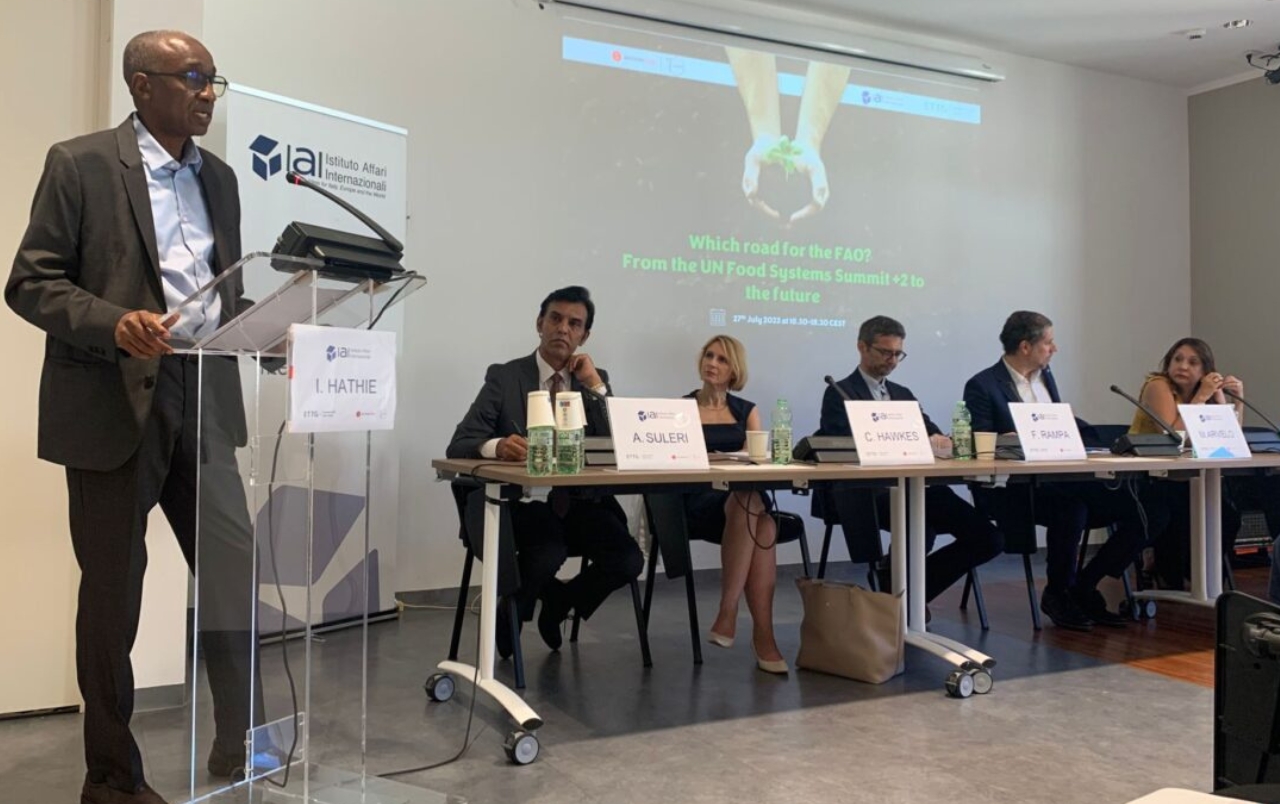Southern Voice, together with Istituto Affari Internazionali (IAI) and the European Think Tanks Group (ETTG), hosted an event on 27 July in Rome, Italy, to discuss how the work of the Food and Agriculture Organization (FAO) can best respond to food security priorities. It happened in the immediate aftermath of the UN Food Systems Summit +2 Stocktaking Moment (July 24-26), and brought together researchers from the Global South and FAO representatives, as well as civil society organisations, farmers’ organisations, indigenous groups and development cooperation practitioners.
The meeting featured a dynamic exchange about the development of strong local food systems, and focused on how these priorities could be addressed by the work of FAO in the coming years. Ahead of the event, Southern Voice had consulted members across its think tanks network to understand the biggest threats to food security and to gather insights into how to establish strong, sustainable local food systems.
Below are some highlight quotes from key speakers and experts:
Ferdinando Nelli Feroci, IAI president: “Only about 15% of SDGs achievements are on track, and 30% have either seen no progress or gone back below previous baselines.”
Dr. Ibrahima Hathie from Initiative Prospective Agricole et Rurale Institute (IPAR – Senegal) and Southern Voice member, listed three priority areas of action to unlock food system transformations: technology, governance and agency. “Technology increases production, decreases waste, and strengthens the resistance of food systems.”
Dr. Lorena Alcázar, lead researcher from Grupo de Análisis para el Desarrollo (GRADE – Peru), Southern Voice’s host organisation, shared insights about the situation of food insecurity in Latin America: “In 2022, food inflation was 43.9% in Latin America compared to 23% globally. Ironically, the region is the world’s largest food exporter.”
Dr. Abid Qaiyum Suleri, executive director of the Sustainable Development Policy Institute (SDPI – Pakistan) and Southern Voice member, stressed among other things challenges related to funding: “If we want food security and food systems to work, we must look at all interlinked problems. It is not limited to hunger – it’s about access to funding in time, and access to funding with no strings attached in times of emergency.”
FAO’s Director of the Division of Food Systems and Food Safety, Dr. Corinna Hawkes, pointed to the need for fully transformative action. She indicated, in particular, the need for transformation in economic incentives “The fundamentals in food systems are economic in nature and influenced by economic models in which we base decision-making. We are not seeing transformation in economic incentives.”
H.E.Mario Arvelo, Ambassador of the Dominican Republic to the UN Rome-based agencies, highlighted how all political decisions are ultimately economic, and that governance plays a key role in transforming a complex system like the global food system: “When looking at transforming anything, it takes a generational approach.”


